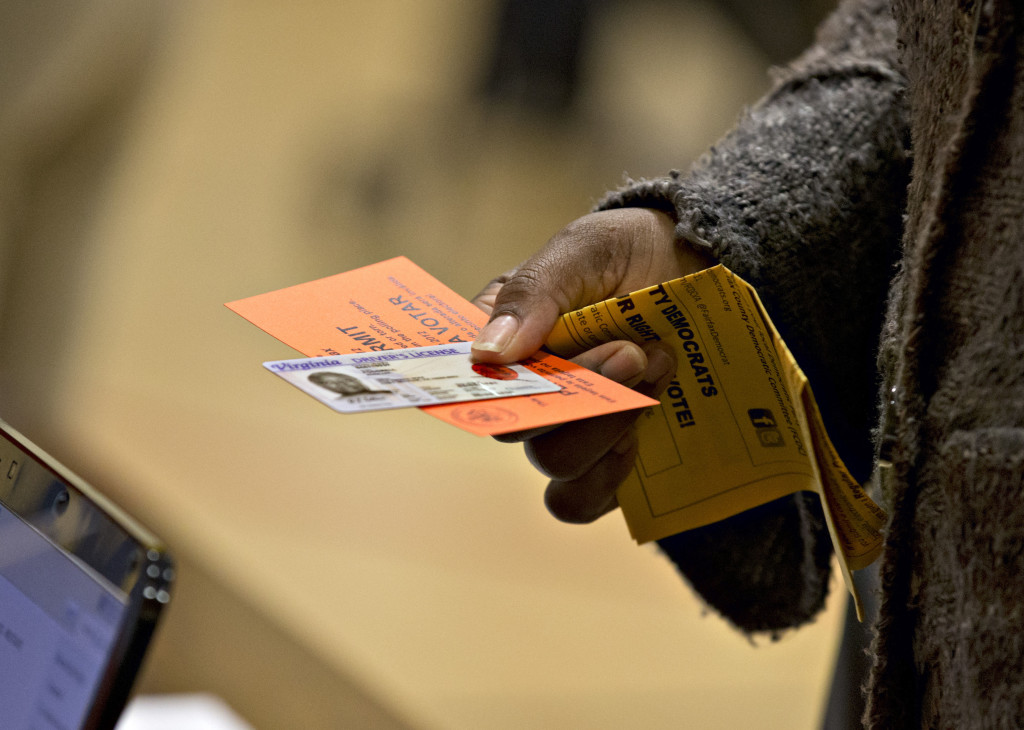Justice Dept. to Sue Texas Over Voter ID Law

August 22, 2013
Share
The federal government waded further into the fight over voting-rights laws on Thursday, when the Justice Department announced it would file a new lawsuit against Texas to block its voter ID law on the grounds that it discriminates against minority voters.
The U.S. also said it would seek a new ruling declaring Texas’ contested 2011 redistricting plans are discriminatory in a separate filing.
Last month Attorney General Eric Holder warned that the government would fight to defend against infringements on voting rights, in the wake of June’s landmark Supreme Court decision overturning a key provision of the Voting Rights Act. That provision, Section 5, required Texas and eight other states to pre-clear all voting changes with the federal government.
“Today’s action marks another step forward in the Justice Department’s continuing effort to protect the voting rights of all eligible Americans,” said Attorney General Eric Holder. “We will not allow the Supreme Court’s recent decision to be interpreted as open season for states to pursue measures that suppress voting rights.
In the voter ID filing, the government is also seeking to bail Texas back under that pre-clearance requirement because of its history of discrimination.
A D.C. federal court already ruled that both the voter ID law and the redistricting maps were discriminatory under Section 5. Texas appealed both of those decisions to the Supreme Court. In June, after Supreme Court overturned Section 5, it vacated the two federal court rulings, effectively allowing both to move forward.
After the Shelby ruling, Gov. Rick Perry announced that Texas would implement its voter ID law immediately. It chose to use other redistricting maps, however, after a voting-rights group, the Mexican-American Legal Defense Fund, filed an injunction to block the 2011 set.
“Eric Holder’s outrageous claim that voter ID is a racist plot to disenfranchise minority voters is gutter politics and is offensive to the overwhelming majority of Texans of all races who support this ballot integrity measure,” said Texas Attorney General Greg Abbott in a statement on Thursday.
In the past, Abbott has pointed to the fact that the Supreme Court had vacated the previous court rulings on Texas’ policies as evidence that the state did not seek to discriminate against minority voters.
Texas isn’t the only state moving ahead with new voting laws in the wake of Shelby. Within 24 hours of the Supreme Court’s decision, four other states — Virginia, Mississippi, Alabama and South Carolina — announced decisions to move ahead with laws, some of which the Justice Department had already blocked as discriminatory.
North Carolina, which was covered in part under Section 5, has passed a spate of laws, cutting back early voting, banning extended polling hours and further restricting acceptable IDs required at the polls. Florida, which was also partly covered and fought a battle with the Justice Department last election over purging Latino voters from its rolls, plans to restart those efforts.

Latest Documentaries
Explore
Policies
Teacher Center
Funding for FRONTLINE is provided through the support of PBS viewers and by the Corporation for Public Broadcasting, with major support from Ford Foundation. Additional funding is provided the Abrams Foundation, Park Foundation, John D. and Catherine T. MacArthur Foundation, Heising-Simons Foundation, and the FRONTLINE Trust, with major support from Jon and Jo Ann Hagler on behalf of the Jon L. Hagler Foundation, and additional support from Koo and Patricia Yuen. FRONTLINE is a registered trademark of WGBH Educational Foundation. Web Site Copyright ©1995-2025 WGBH Educational Foundation. PBS is a 501(c)(3) not-for-profit organization.



















